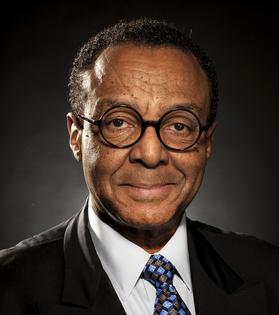A College-Level Challenge: When Free Speech Sounds Like Cyberbullying
A University of Chicago student who happens to be white objected to an undergraduate anthropology class titled “The Problem of Whiteness.”
Daniel Schmidt, a sophomore who didn’t know the lecturer, was outraged — and he showed it in a tweet that happened to include the lecturer’s photo and email address.
If you know anything about the bottomless hunger of online culture, it won’t surprise you to hear that a storm of hate mail inundated the inbox of the lecturer, Rebecca Journey, after Schmidt’s description went out into cyberspace.
Contrary to the insistence of Schmidt and other misreaders of her class title, Journey was not promoting anti-white hatred.
“Anti-white hatred is now mainstream academic inquiry,” Schmidt said of her class.
Not quite, although I am sure that mislabeling innocent academic study as “hatred” helps to wake up the fearful masses. Conservatives have generated similar mileage from insisting that a “Black-supremacist” version of critical race theory is lurking under every bed.
With inflammatory rhetoric aimed at her from the Twitterverse and other social networks, it’s understandable that Journey, a new Ph.D. recipient, postponed her new class to the spring while the university addresses safety concerns.
She also hopes the university will deal with the complaints she filed, accusing Schmidt of doxxing (public exposure of her personal information on the internet) and harassing her.
For his part, Schmidt strongly denies encouraging anyone to harass her, and the university reportedly dismissed her claims. Under the university’s widely praised commitment to academic freedom, speech is restricted only when it “constitutes a genuine threat or harassment.”
But the rest of the academic year has tested how well the university’s principles can keep up with a new and rapidly changing media environment in which a single tweet can trigger a hailstorm of reactions.
This, after all, is an age of do-it-yourself media and entrepreneurial politics in which public anger can be rounded up and inflamed into large and often-lucrative movements at the speed of a broadband signal.
In this superheated environment, it becomes more important to counter disinformation with good information, beginning with “whiteness studies,” an area of sociological study and research that probes how race is defined, its origins and how it is constructed by societies more than by nature.
As W.E.B. DuBois said in 1920, “The discovery of a personal whiteness among the world’s people is a very modern thing — a 19th and 20th matter, indeed.”
Whiteness studies tend to take it as a premise that race is more of an evolving social construct than a biological reality. It evolves in interaction with such historical events as wars, slavery, colonial settlement and citizenship.
As Princeton professor Nell Irvin Painter wrote in her 2010 book, “The History of White People,” the idea of whiteness is not just a matter of biology but also includes “concepts of labor, gender, class and images of personal beauty.”
It is not surprising, then, that some people flinch at the notion that whiteness studies examine social structures that produce “white privilege” and, inevitably, racism.
I have learned from experience that mentioning the phrase “white privilege” by itself can be so triggering to white people that they immediately take a defensive posture and quickly point out how they are “not racist” nor benefiting from any special “privilege.”
Knowing how uncomfortable it makes some people to even bring up racial topics in mixed company, I have learned better than to argue the “privilege” point for very long with anyone who takes it that personally.
For now, allow me to at least to correct the record for those people who think incorrectly that Journey’s course is titled “The Problem of White People.”
I understand their sense of offense, since I have been through a lifetime of folks who view African Americans like me as a “problem” people. On the contrary, as several civil rights leaders I have covered used to say, “We’re not a problem people. We’re just people with problems.”
The university’s late President Robert Zimmer wrote about academic freedom in 2016: “Universities cannot be viewed as a sanctuary for comfort but rather as a crucible for confronting ideas and thereby learning to make informed judgments in complex environments.”
That still holds true today. Or, at least, it should.
========
(E-mail Clarence Page at cpage@chicagotribune.com.)
©2023 Clarence Page. Distributed by Tribune Content Agency, LLC.
(c) 2023 CLARENCE PAGE DISTRIBUTED BY TRIBUNE MEDIA SERVICES, INC.



























Comments